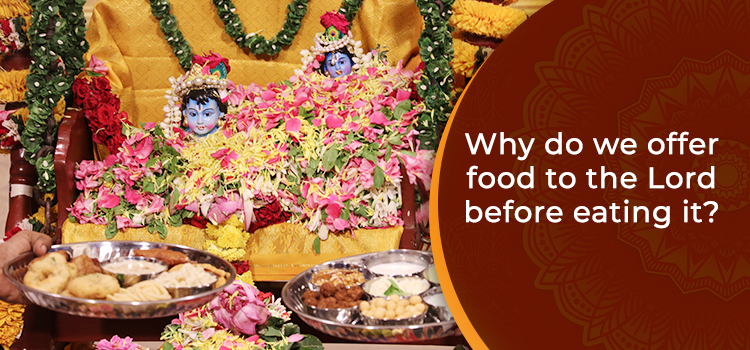Why Do Hindus Offer Food To God ?

The act of presenting food to the murti (idol) of God holds immense importance in Hinduism. The earliest mention of offering or providing food to God can be found in RigVeda III.34.9. In Hindu religion, every puja is considered incomplete and fruitless without the offering of food. The term “Naivedyam” refers to the food offered to God before consumption, also known as Bhog or prasād. Throughout centuries, every food item prepared in a Hindu household was initially presented to God in the family personal mandir before being consumed by the household members. Shree Krishna stated in the 13thVerse of Bhagavad Gita, Chapter 3:
yajña-śhiṣhṭāśhinaḥ santo muchyante sarva-kilbiṣhaiḥ
bhuñjate te tvaghaṁ pāpā ye pachantyātma-kāraṇāt
Meaning: – The spiritually-minded, who eat food that is first offered in sacrifice, are released from all kinds of sin. Others, who cook food for their own enjoyment, verily eat only sin.
When the food is presented to God, ittransforms into “Prasadam”; We consistently engage in sharing this sacred offering and refrain from consuming it in isolation. Upon receiving Prasadam, we abstain from expressing complaints about its quantity ,quality, or taste. There is no criticism of Prasadam; rather, we consume it with a joyful disposition and unconditional acceptance. Once the “Bhog”; is presented to God, the essence of food undergoes a transformation from being merely materialistic to acquiring spiritual significance. It transcends its role as a mere nutritious meal, now possessing spiritual nourishment that feeds the soul.
